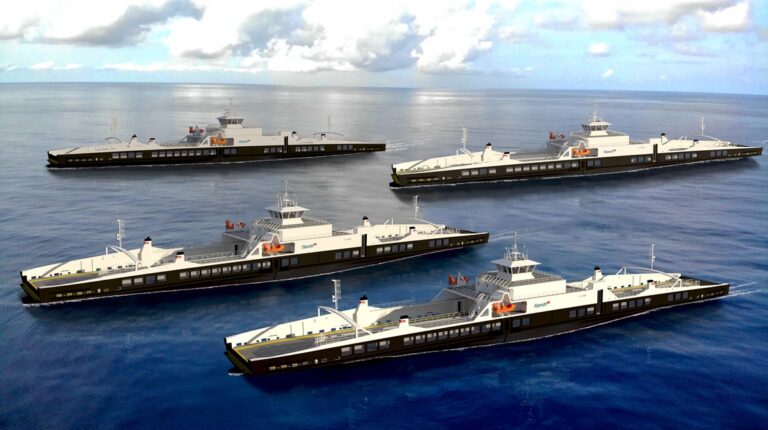HAV Group’s ship design business, HAV Design, has signed a contract to design and develop four new-build, autonomous zero-emission ferries that will operate the Lavik-Oppedal crossing on the northwest Norway coast.
Under the contract, HAV Group’s ship design business will deliver ship design and an engineering package for all four autonomous ferries. The ship design is reportedly based on a future-oriented operating concept that ferry operator Fjord1 has developed together with HAV Group. The ferries will operate with autonomous navigation and a high degree of automation of vessel functions to replace manual operations on board and on land.
The Lavik-Oppedal ferry route crosses the Sognefjord, on the northwest coast of Norway, from Lavik in Høyanger Municipality to Ytre Oppedal in Gulen Municipality. The ferry crossing takes 20 minutes and the route is 5.6km long. Four new-build zero-emission ferries will operate the route from September 1, 2026, onward.
HAV Group has previously announced that its energy and smart control business is expected to act as a system integrator and provide complete system deliveries for power systems, automation and bridges, two onshore charging stations and systems for the automation of vessel functions and autonomous navigation. Information about additional contracts will be shared in due course. When all relevant agreements have been signed, HAV Group will indicate the total effect on the group’s order book from these agreements.
“When these four ferries have been delivered, we will have designed 18 electrical ferries for Fjord1,” said Jan-Magne Goksøyr, vice president of sales at HAV Design. “While this is a notable number, the environmental and technological profile for these four new-build ferries represent a major step into the future. Being allowed to design and develop such highly innovative ferries is a proud moment for us.”
Gunnar Larsen, CEO of HAV Group, commented, “For a group that prides itself on being an enabler of green transition at sea, this contract is obviously a perfect strategic fit for us. We are still at the early adopter stage of autonomous sailing capabilities and automation of vessel functions, so this market is expected to grow considerably in the coming years and decades. This contract puts us in pole position to capitalize on this market growth.”
For more key new vessel updates from the electric and hybrid marine technology industry, click here.



